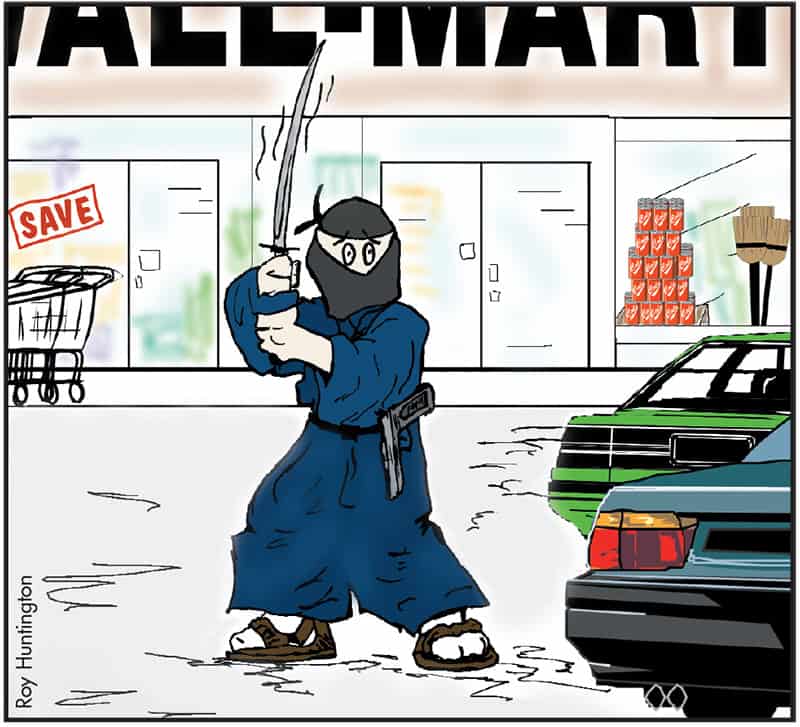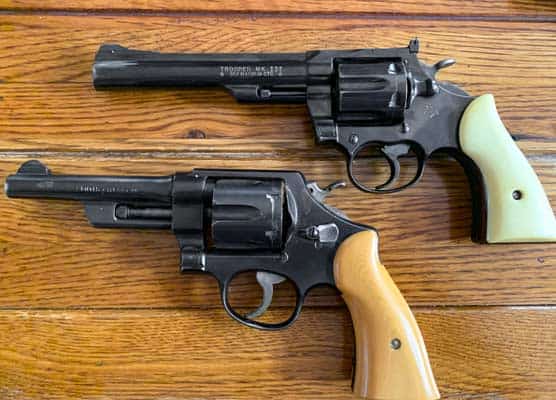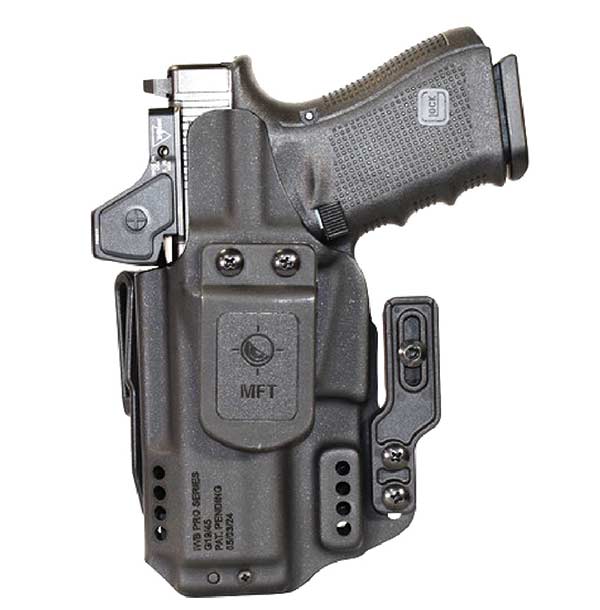Ninjas?
The hard part to accept about training is if it’s done correctly, the skill you acquire is hardly ever used. As a matter of fact I believe the purpose of training is to acquire enough skill so you probably won’t have to use what you learned while training. Training isn’t always about guns, in fact it may be more about tactics, if applied properly. These are not always “tactics” in the sense of open doors or room clearing, but tactics in the sense of awareness of your personal environment.
You know, you’re probably not really a Ninja, nor do you need to be.
In a recent CNBC interview, the reporter asked me why I thought crime was down nation-wide. “Was it due to increased concealed carry states, more guns, training or what?” he said with raised eyebrows. He was slightly taken aback when my response was: “It’s probably due to awareness, as much as anything.” More people are simply looking around to see what’s around them. Does that parked truck belong there, who are those people? It’s simply a case of being aware of your surroundings. In my conversations over the years with survivors of confrontations, they often remark as to how they saw “something” prior to the beginning of the conflict, but did not pay heed — or simply didn’t recognize the signals they were receiving.
I suggest a series of things many are familiar with but have usually not applied regarding personal awareness. I believe these points, applied in the context of our personal security, can be helpful to raise our level of awareness.
The Easy Stuff
Who? Who is that guy at my door or approaching me on the street? If I don’t know them or their intent, why would I allow them access to me or my home?
What? What’s that noise? What’s going on at that intersection? What’s that guy doing walking down the street with a rifle? Maybe I should go ask him what he is up to — or not? If I hear what I think are gunshots, maybe I should go to the “sound of the guns” to find out? Then again, maybe not.
Where? Where am I and where are other people around me? I always love the people who come up with “When I drive through the bad part of town as I take a short cut home” comment. This is America and yes, you should be able to drive whenever you like. But, sometimes when you go where trouble grows, you might have to harvest some. Take the long way home and enjoy the drive.
When? The word “when” projects the concept of time. If you knew there was going to be a fight you should leave. If you have early warning there is going to be a fight you should leave. If there’s going to be trouble, leave. Simple. Unless you have to say for some reason.
Why? Why is that guy coming into the store in August with a trench coat on? It’s not raining so I guess he’s a flasher? Or maybe there’s an armed robber lurking under that coat? Why does he continue to keep his hands in his pockets or behind his back while I am screeching “Show me your hands, put your hands where I can see them, drop any weapons!” as my .45 covers him? If a real or perceived threat to me is not complying with my requests, keep asking why. Maybe you should seek cover, maximize the distance to the threat — but do something!
I’ve had people ask, “You don’t understand Clint, it’s my job to close with the bad men.”Yeah I know. I just read about some cops in Louisiana who closed with a bad guy and continued to due so until he killed several of them. I know what cops do, I was one for some years. Too many get killed every year, so could we please consider that, on occasion, we might contemplate creating distance until the situation has a degree of clarity? Or at least until we get better control of a situation, either visually or physically?
No Hi-Speed, Low Drag ...
You can listen to the gun-talkingheads and hang around the gun store commandos who talk of “real training” and “big boy” training for big boys and what “real men” do and you’ll find they often come up with quaint, catchy sayings. There is a common thread here. Big talkers, bad shooters and bad tacticians all have something in common with drunk drivers — when they do what they do — somebody else always seems likely to get killed.
If you do in fact have a problem, you have the rest of your life to solve it. How long your life lasts only depends on how well you solve it. Be aware of what’s around you. It’s not fancy and not very flashy. But no, we’re not all ninja’s — nor do we need to be. An 82 year old grandmother could abide by these simple rules. And if she does, she’ll probably live to tell about her little adventure.
Get more personal defense content every other week!
Sign up to receive the Personal Defense newsletter.
By submitting this form, you are consenting to receive marketing emails from: . You can revoke your consent to receive emails at any time by using the SafeUnsubscribe® link, found at the bottom of every email. Emails are serviced by Constant Contact



